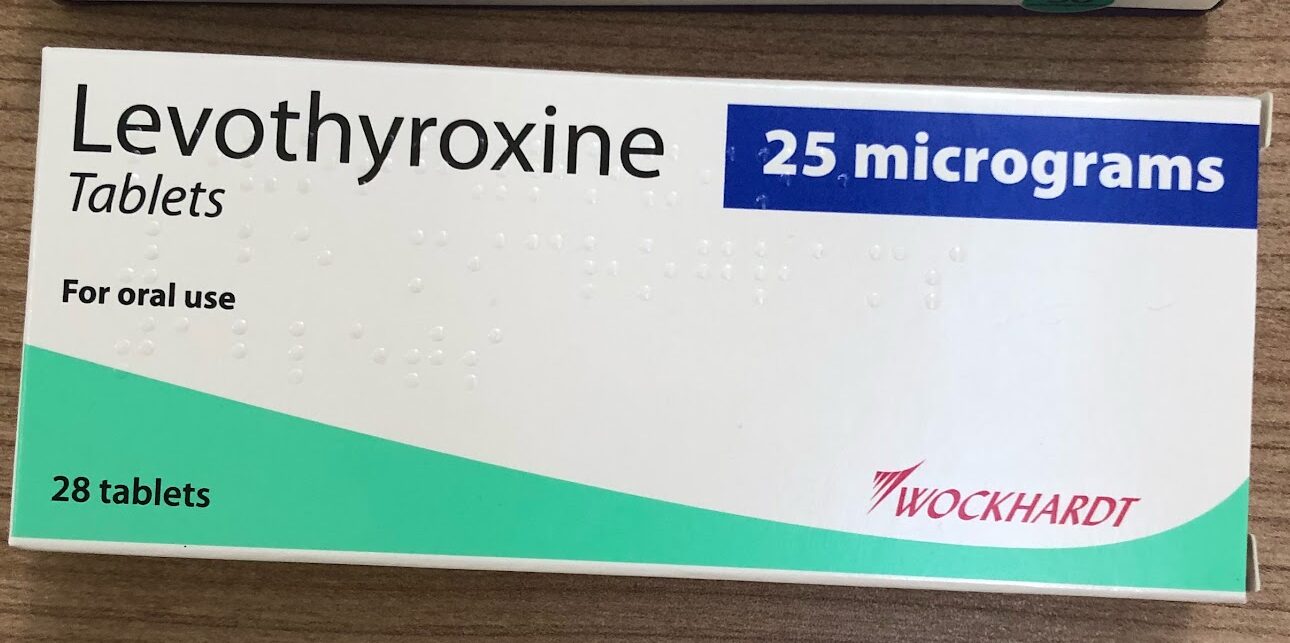
Levothyroxine
Levothyroxine is a synthetic form of the thyroid hormone thyroxine (T4), commonly used to treat hypothyroidism (an underactive thyroid). The medication helps restore normal thyroid function, supporting a range of bodily processes such as metabolism, energy production, and growth. 
What is Levothyroxine?
Levothyroxine is a medication that blocks the action of the thyroid hormone, which is naturally released by the thyroid gland. In cases where the thyroid is underactive and unable to produce enough of this hormone, It is prescribed to supplement and maintain normal levels.
How Levothyroxine Works
Levothyroxine works by elevating the levels of thyroid hormones in the bloodstream. These hormones influence various physiological processes, including:
- Regulating metabolism: Balances energy use in the body.
- By Supporting growth and development: crucial for normal cellular function.
- Maintaining heart and digestive functions: Impacts the functioning of the heart, digestive system, and other organs.
Uses of Levothyroxine
It is primarily prescribed for:
- Hypothyroidism: A condition where the thyroid gland is can’t produce enough thyroid hormones.
- Goiter: Enlargement of the thyroid due to iodine deficiency or other factors.
- Thyroid cancer: To inhibit the growth of remaining thyroid tissue after treatment of cancer.
- Thyroid hormone replacement after thyroid surgery: Following the removal of the thyroid.
Dosage and Administration
Levothyroxine is typically taken once a day on an empty stomach, 30 to 60 minutes before breakfast, for optimal absorption. The dosage depends on various factors such as age, weight, severity of hypothyroidism, and individual response to the medication. Regular blood tests are needed to check thyroid hormone levels and set the dosage accordingly.
Possible Side Effects
While levothyroxine is generally safe, it may cause side effects, especially if the dose is too high. Common side effects include:
- Increased heart rate
- Nervousness or anxiety
- Weight loss
- Sleep disturbances
- Excessive sweating
Rarely, overdosage can lead to symptoms of hyperthyroidism, such as tremors, rapid heartbeat, and high blood pressure.
Factors That Affect Levothyroxine Absorption
Certain factors can mess with the absorption or effectiveness of levothyroxine:
- Food: Foods like soy, high-fiber foods, and certain supplements may reduce the absorption.
- Other Medications: Some medications, such as antacids, calcium supplements, and iron, can interact with levothyroxine, reducing its effectiveness.
- Age: Older adults may need a lower dose due to changes in metabolism.
Precautions and Considerations
Before starting levothyroxine, inform your healthcare provider if you have:
- Heart conditions: It may increase heart rate, so caution is needed in people with cardiovascular issues.
- Adrenal insufficiency: This condition may need to be treated before starting thyroid hormone replacement.
- Allergies: Be sure to disclose any known allergies, especially to the medication itself.
Monitoring and Follow-up
Once you begin taking levothyroxine, regular follow-up visits with your doctor are crucial to monitor your progress. Blood tests will measure your thyroid-stimulating hormone (TSH) and thyroxine (T4) levels to ensure they are within the desired range.
Brand Names Levothyroxine
- Synthroid®
- Levoxyl®
- Unithyroid®
- Tirosint®
- Levothroid®
Conclusion
Levothyroxine is an essential medication for individuals with hypothyroidism or other thyroid-related conditions. By restoring normal thyroid hormone levels, it helps regulate metabolism, energy, and overall health. Proper dosage, adherence to medical advice, and regular monitoring are key to maximizing its benefits and minimizing potential risks.